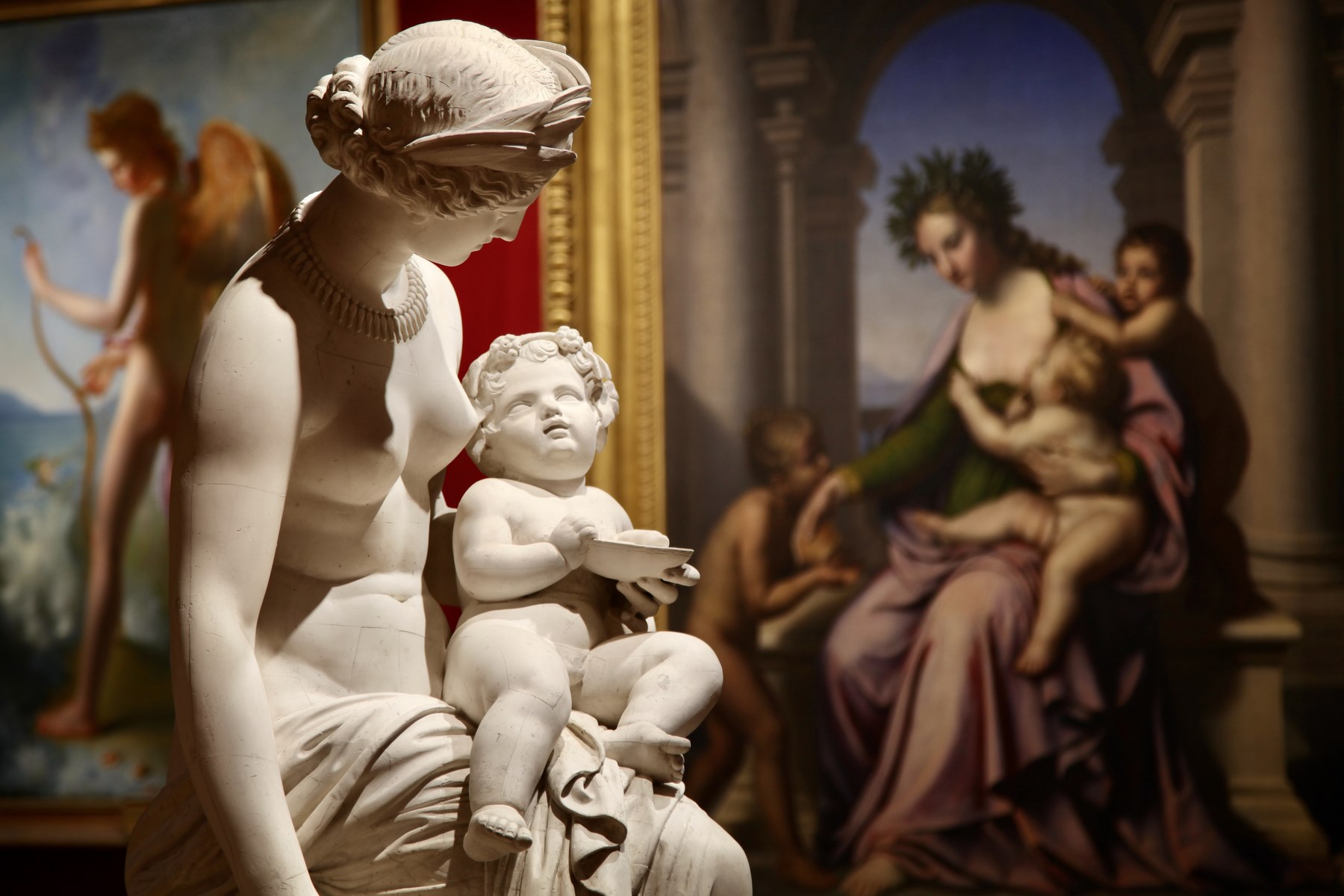

Located in the Convent of the Jacobines and dating back to the 17th century, the Museum of Semur-en-Auxois holds a unique collection of artefacts from a Drawing and Sculpture school created in 1833.
In the yard of the museum, you will find a fabulous collection of firebacks from the 16th to the 19th century. The cast gallery is located on the ground floor ; it gathers the stunning collection of original plastercasts by Augustin Dumont, a 19th century sculptor, who bequeathed a part of his workshop to the museum. Augustin Dumont is known mainly for his masterpiece, the Génie de la Bastille in Paris, and the museum holds its original master copy. The medieval room is a magnificent vaulted room which displays treasures from the Collégiale of Semur, among which a superb mural attributed to Jehan de Bruges and representing Saint Christophe. This room also shows a wide variety of objects such as sculptures, tombstones, wood beams, ornamental tilings, keys and locks which are a perfct illustration of medieval architecture.
The Paleontogical and Geological room is especially created in 1866 in order to receive a fabulous collection of more then 10,000 geological and paleontogical artefacts has kept the spirit of the 19th century encyclopédia. You will find there, among others, outstanding Sinemurian ammonites whose names derive from the name Semur-en-Auxois.
The Zoological room gathers shells, fishes, stuffed vertebrates and invertebrates, are an example of the local wildlife or wildlife from remote exotic places which are a reminder of the old wonder rooms.The museum has plenty for families including, in this room, an expuisite and most amusing laboratory showing how people used to stuff animals.
The Archaelogical room displays numerous protohistoric, prehistoric and gallo-roman objects, including a stunning collection of votive offerings found in the springs of the river La Seine.
The large Fine Arts room, lit by daylight from above, displays a very fine selection of 17th, 18th and 19th century paintings by Blanchet, Vignon, Kraus, Heemskerk, Bouhot, Raverat, Desgoffes, Tassaert and Corot, as well as plastercasts by Augustin Dumont and regional artists (Guillaume, Dampt, Tavaux). The end of the Middle Ages and Renaissance period are highlighted in this room by several various works originating from the convents or houses of Semur-en-Auxois